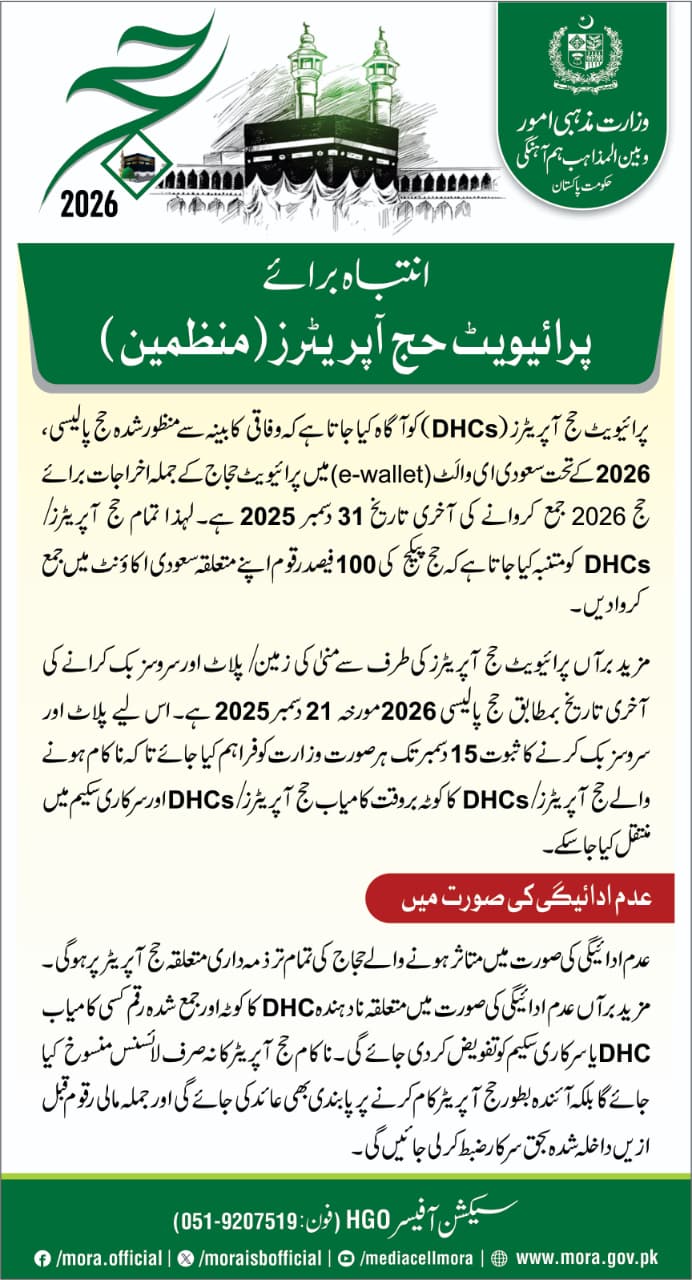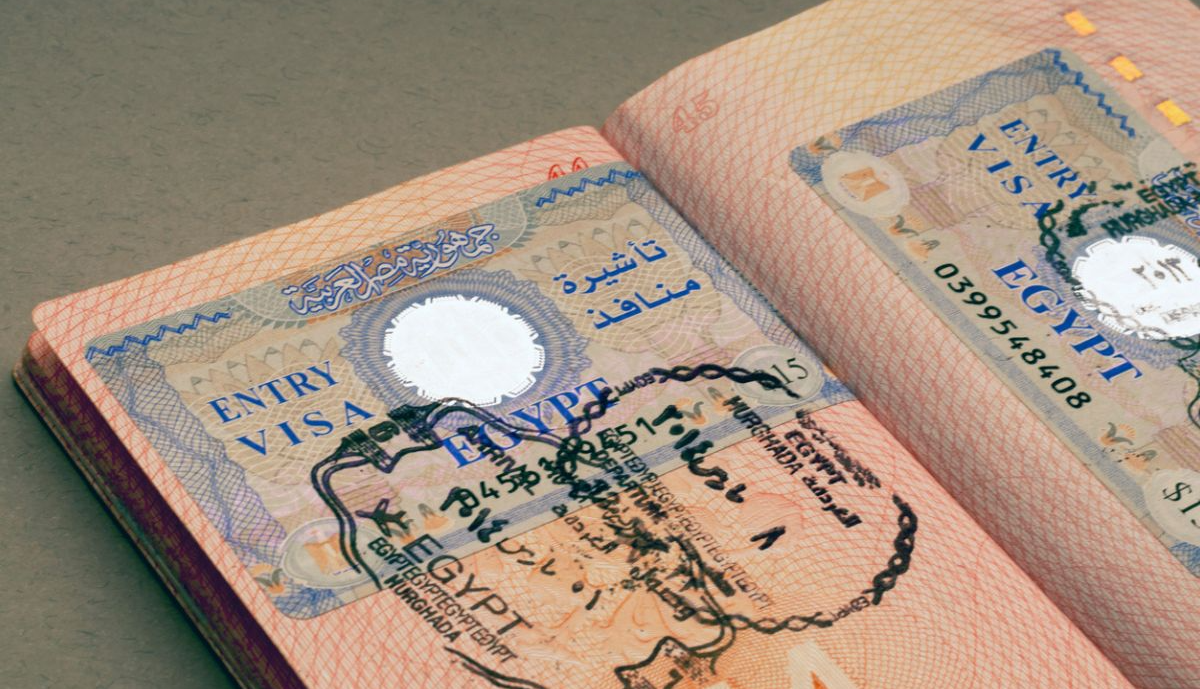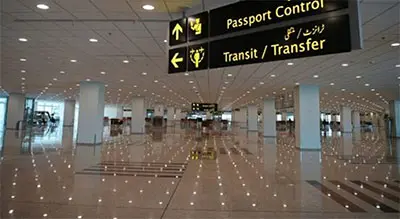
The year 2025 marks a significant milestone in the spiritual journeys of Muslim women worldwide, as Saudi Arabia officially solidifies its policy allowing women to perform Umrah without a Mahram (male guardian). This transformative reform, initially announced in October 2022 by Dr. Tawfiq Al-Rabiah, the Saudi Minister of Hajj and Umrah, has paved the way for an unprecedented wave of female pilgrims to embark on this sacred journey with greater ease and independence. This comprehensive article delves into the details of this pivotal change, exploring its implications, the updated requirements, the historical context, and essential considerations for women planning their Umrah without a Mahram in 2025.
1. A Paradigm Shift in Pilgrimage: The End of the Mahram Requirement
For centuries, the requirement of a Mahram—a male relative with whom marriage is forbidden (such as a father, brother, husband, or son)—has been a deeply ingrained condition for women undertaking long-distance travel, including the pilgrimages of Hajj and Umrah. This stipulation, rooted in historical interpretations of Islamic jurisprudence primarily for safety and protection in times when travel was fraught with peril, presented a significant barrier for many Muslim women who lacked a suitable male companion.
The decision by Saudi Arabia to allow women to perform Umrah without a Mahram represents a profound shift. It acknowledges the evolution of modern travel safety and aligns with contemporary interpretations of Islamic law by various scholars who emphasize the importance of women's access to religious duties when safety is assured. This progressive move is a testament to the Kingdom's broader reforms under Saudi Vision 2030, which aims to modernize the nation, diversify its economy, and enhance the visitor experience, particularly within the burgeoning religious tourism sector.1 The ability for women to perform Umrah independently is a key aspect of this vision, empowering millions globally.
1.1. What Does "No Mahram Umrah" Mean?
"No Mahram Umrah" directly refers to the act of a woman undertaking the Umrah pilgrimage to Mecca and Medina without the traditional accompaniment of a Mahram. Historically, the Mahram served as a guardian, providing protection and ensuring the woman's safety and well-being throughout the arduous journey. With the official policy change, the need for this specific male accompaniment is removed, allowing adult women to plan and execute their Umrah journey on their own or with groups of other women.2 This liberation from the Mahram requirement is set to redefine the Umrah experience for countless women in 2025 and beyond.3
2. Eligibility and Visa Requirements for 2025
The updated regulations for Umrah without Mahram in 2025 are designed to be inclusive, although specific age guidelines and booking procedures are crucial for prospective pilgrims to understand.4
2.1. Age and Group Travel Considerations
Initially, the relaxation of the Mahram rule in late 2022 and early 2023 primarily focused on women over the age of 45, often with an emphasis on traveling in organized groups. However, the current understanding, particularly as we move into 2025, is that women aged 18 and above from all nationalities are generally eligible to apply for Umrah visas without a Mahram.5
- Women aged 18 and above: Can now apply for an Umrah visa as individual pilgrims.
- Recommendation for Group Travel: While individual travel is permitted, joining a reputable and organized Umrah group or tour operator is highly recommended, especially for first-time pilgrims.6 Group travel often provides an added layer of safety, logistical support, and companionship, which can enhance the overall spiritual experience.7 Many tour operators now offer specialized "women-only" Umrah packages, catering specifically to the needs and preferences of female pilgrims traveling independently.8 This emphasis on group travel for women helps ensure a safe and comfortable journey.
- Country-Specific Regulations: It is important to note that while Saudi Arabia has removed the Mahram requirement, some countries may still have their own internal regulations or recommendations for women traveling for pilgrimage. For instance, some nations might still advise or require spousal or parental consent for their female citizens to travel for religious purposes. Pilgrims should verify any such requirements with their respective national authorities.
2.2. The Nusuk Platform: A Mandatory Booking Hub
A significant development in Umrah planning for 2025 is the mandatory requirement to book accommodation in advance through the official Nusuk Masar platform before applying for an Umrah visa.9 This rule applies to all nationalities and visa applicants, including women traveling alone.
- Nusuk Masar Integration: As of June 2025, the Nusuk Masar platform is the central digital gateway for managing various aspects of the Umrah journey.10 It allows pilgrims to:
- Browse and book approved hotels in Mecca and Medina.
- Reserve permits for Umrah and Ziyarat (via the Tawakkalna or Nusuk Umrah app).
- Book local transportation.
- Access travel materials and support in multiple languages.
- Mandatory Hotel Booking: The Umrah visa hotel booking requirement is officially in effect.11 Pilgrims must now secure their accommodation through Nusuk Masar before submitting their visa application.12 Failure to provide a verified hotel booking through this platform will result in an automatic rejection of the visa application. This streamlined process aims to improve service standards, regulate hospitality experiences, and enhance crowd control.
- Tourist Visa Option: Notably, the tourist e-Visa system also covers Umrah.13 For many nationalities, a multi-entry tourist visa valid for up to one year, allowing stays of 90 days per visit, can be used to perform Umrah outside of the Hajj season. This flexibility further simplifies the process for women traveling without Mahram, as they can apply for a tourist visa and perform Umrah.14
- Required Documents: General visa requirements typically include:
- A valid passport with at least six months of remaining validity from the planned return date.15
- Recent passport-sized photographs with a white background.
- Proof of required vaccinations (e.g., Meningitis, Polio, as per Saudi health regulations).16
- Confirmed round-trip flight tickets.
- Confirmed accommodation bookings via Nusuk Masar.17
- Travel insurance (often automatically linked to the visa).
3. Safety and Modesty: Essential Guidelines for Female Pilgrims
While the logistical barriers have been significantly reduced, safety and modesty remain paramount for all pilgrims, especially for women traveling independently for Umrah. Saudi Arabia has implemented various measures to ensure a secure and comfortable environment.18
3.1. Dressing and Cultural Etiquette
- Modest Attire: Women are expected to dress modestly in public, which includes wearing an abaya (a loose, full-length robe) and a headscarf (hijab) that fully covers the hair.19 While vibrant colors are acceptable, loose-fitting and opaque fabrics are preferred.
- Respect for Local Customs: Adhering to local customs and traditions is crucial. This includes maintaining a respectful demeanor, especially in the holy sites, and being mindful of public behavior.20
- Specific Ritual Wear: During the state of Ihram for Umrah, women wear their normal modest clothing, as long as it adheres to Islamic guidelines (loose, covering the body, and not excessively adorned). Unlike men, they do not have specific Ihram garments but must avoid wearing niqab (face veil) or gloves during this period.
- Female-Only Facilities: To enhance comfort and privacy, many accommodations, transportation options, and prayer areas within the Grand Mosque (Masjid al-Haram) in Mecca and the Prophet's Mosque (Masjid an-Nabawi) in Medina offer female-only sections.21 This allows women to perform Umrah rituals in a dedicated space.
3.2. Practical Safety Measures
- Staying Connected: Keep family and friends informed of your itinerary and regularly check in. A fully charged mobile phone with a local SIM card or international roaming, along with a portable power bank, is essential.
- Valuables: Keep passports, money, and other valuables in a secure, discreet place, such as a thin belt pouch worn under the abaya.
- Awareness of Surroundings: Stay vigilant, especially in crowded areas. It is advisable to walk in well-lit areas and avoid late-night outings alone, particularly for those performing Umrah without Mahram.22
- Group Support: Even if not part of an official tour group, connecting with other female pilgrims at your accommodation or during rituals can provide a valuable support network. Many women prefer the camaraderie and added security of group travel for women.23
- Health and Well-being: The Umrah journey can be physically demanding.24 Pilgrims should stay hydrated, carry essential medications, wear comfortable walking shoes, and take regular rests. Access to medical facilities is readily available in Saudi Arabia.
4. Historical and Scholarly Perspectives on the Mahram Requirement
The relaxation of the Mahram requirement for women's travel to Umrah by Saudi Arabia has naturally brought to the forefront the diverse scholarly views on this issue within Islamic jurisprudence. Understanding this historical context of Mahram requirement in Islam for travel is important for appreciating the significance of the current reforms.
4.1. Traditional Interpretations
Traditionally, many classical Islamic scholars, particularly from the Hanafi and Hanbali schools of thought, have held the view that a woman is not permitted to travel a long distance (often defined as a journey of a day and a night, or approximately 48 miles/77 km) without a Mahram. This ruling is primarily based on specific Hadith (sayings and actions of Prophet Muhammad PBUH) such as:
- "No man must be alone with a woman except in the presence of her Mahram. No woman should travel except in the company of a Mahram." (Bukhari and Muslim)
- Another Hadith states, "It is not permissible for a woman who believes in Allah and the Last Day to make a journey of one day and night unless she is accompanied by a Mahram (husband or male relative whom she is prohibited to marry)."25 (Abu Hurairah)
These Hadith were interpreted in light of the social and security conditions of ancient times, where journeys were perilous, and women traveling alone faced significant risks of harm, harassment, or exploitation. The Mahram served as a protector and guarantor of her safety and honor.
4.2. Contemporary and Permissive Views
However, a number of contemporary Islamic scholars and jurists have offered more nuanced interpretations of these Hadith, arguing that the underlying reason (illah) for the Mahram requirement was primarily the safety of the woman. If safety can be ensured through other means, such as traveling in a secure group, or if the journey itself is inherently safe due to modern infrastructure and security, then the Mahram requirement can be waived.
- Emphasis on Safety (Maslaha): Scholars like Sheikh Yusuf Al-Qaradawi, along with the European Council for Fatwa and Research, Dar al-Ifta al-Misriyyah, and scholars from Al-Azhar, have opined that if a woman's safety is guaranteed—for instance, by traveling with a trustworthy group or on modern, safe transportation routes—then she is permitted to travel for pilgrimage without a Mahram. They often cite the Hadith where the Prophet Muhammad (PBUH) foretold a time when a woman would travel from Hira to the Kaaba fearing no one but Allah, indicating a future where safety would negate the need for a constant male escort.
- Precedent of the Mothers of the Believers: Some scholars also point to instances where the Mothers of the Believers (wives of the Prophet PBUH) traveled for Hajj after the Prophet's demise without a Mahram, but under the protection of a large, trustworthy caravan or with a trusted companion.26
The Saudi Arabian government's decision aligns with these contemporary scholarly views, prioritizing women's access to Umrah while acknowledging the improved safety and security of modern travel to the holy cities. This represents a pragmatic approach that balances religious tradition with contemporary realities, reflecting the Kingdom's commitment to facilitating the pilgrimage for all Muslims.
5. The Broader Impact: Saudi Vision 2030 and Women's Empowerment
The lifting of the Mahram requirement for Umrah is not an isolated policy change but a key component of Saudi Arabia's ambitious Saudi Vision 2030. This transformative national development plan, spearheaded by Crown Prince Mohammed bin Salman, aims to diversify the Kingdom's economy away from oil, develop public service sectors, and enhance the quality of life for its citizens.27
5.1. Economic Diversification Through Tourism
- Religious Tourism Growth: Vision 2030 places a strong emphasis on boosting tourism, particularly religious tourism.28 By making Umrah more accessible to a wider demographic, including millions of women who previously faced barriers, Saudi Arabia aims to significantly increase the number of pilgrims visiting Mecca and Medina annually. This directly contributes to economic diversification and job creation within the tourism and hospitality sectors.
- Infrastructure Development: To support this growth, massive investments are being made in infrastructure, including expanding airports, improving transportation networks (such as the Haramain High-Speed Railway), and developing new hotels and services tailored to pilgrims.29 These improvements directly benefit women performing Umrah independently, ensuring a smoother journey.
5.2. Women's Empowerment and Social Reforms
- Increased Participation: The ability of women to perform Umrah without a Mahram is a clear indicator of the broader social reforms occurring in Saudi Arabia. This follows other significant changes, such as allowing women to drive, easing gender segregation rules in public spaces, and increasing women's participation in the workforce.
- Global Standing: These reforms are part of a concerted effort to project a more modern and inclusive image of Saudi Arabia on the global stage. By removing barriers to religious practice for women, the Kingdom aims to enhance its international standing and demonstrate its commitment to empowering its female population.
- Positive Feedback Loop: As more women travel for Umrah, it is expected to create a positive feedback loop, encouraging further development of female-centric services and amenities, from female-only guides to specialized transport and accommodation, further enhancing the experience for female pilgrims in 2025.
.webp)
6. Essential Preparation for Women Performing Umrah in 2025
For women planning their Umrah without Mahram in 2025, meticulous preparation is key to a spiritually fulfilling and hassle-free journey.
6.1. Comprehensive Checklist for Female Pilgrims
To ensure a smooth journey, here’s a detailed checklist for women planning to perform Umrah in 2025:
- Documentation:
- Valid Passport (minimum 6 months validity beyond intended stay).30
- Umrah Visa or Tourist e-Visa (ensure it is processed and approved).
- Copy of confirmed Nusuk Masar hotel booking.
- Confirmed round-trip flight tickets.
- Travel insurance documents.
- Identification (e.g., national ID card, driver's license).
- Copies of all important documents stored digitally and physically in separate locations.
- Health and Medical:
- Proof of mandatory vaccinations (Meningitis, Polio, etc.).31
- Any personal prescription medications (with doctor's note if necessary).
- Basic first-aid kit (pain relievers, antiseptic wipes, blister plasters for walking).
- Unscented toiletries (for use during Ihram).32
- Hand sanitizer and masks (recommended for crowded areas).33
- Consider a health check-up before travel.
- Clothing and Essentials:
- Multiple abayas or loose, modest dresses.
- Several clean headscarves/hijabs.
- Comfortable walking shoes or sandals (broken-in).34
- Socks (especially for warmth in air-conditioned areas).35
- Small, lightweight prayer mat.36
- Small Quran or pocket-sized Dua book.
- Dhikr beads (tasbeeh).37
- Unscented sunblock and lip balm.
- Small umbrella for sun protection.
- Financial and Communication:
- Local currency (Saudi Riyals) and a credit/debit card.
- Portable power bank and universal travel adapter.
- Local SIM card or international roaming plan.
- List of emergency contacts (family, embassy, tour operator).38
- Downloaded navigation apps and translation apps.
- Logistical Planning:
- Familiarize yourself with the Umrah rituals (Tawaf, Sa'i, hair trimming).39
- Understand the layout of Masjid al-Haram and Masjid an-Nabawi.
- Plan for transportation within the cities (taxis, ride-sharing apps, hotel shuttles).
- If traveling with a group, ensure you have all contact details for your group leader and fellow pilgrims.
7. The Spiritual Significance of Umrah for Women
Beyond the logistical and policy changes, the opportunity for women to perform Umrah without a Mahram carries immense spiritual significance. Umrah is a highly recommended (Sunnah Mu'akkadah) act of worship in Islam, offering immense spiritual rewards.40
- Deepened Connection with Allah: Performing Umrah independently allows for a more personal and introspective journey. Without relying on a male guardian, women can develop a stronger sense of self-reliance and deepen their direct connection with Allah (SWT). This autonomy can foster profound spiritual reflection and a heightened sense of devotion.
- Fulfillment of Religious Aspirations: For many women, the Mahram requirement was an insurmountable obstacle, preventing them from fulfilling a deeply held religious aspiration. The new policy removes this barrier, allowing countless women to experience the spiritual serenity and blessings of visiting the holy cities of Mecca and Medina. This is a monumental step for the faith journeys of female pilgrims.
- Empowerment and Community: This change empowers women to take ownership of their spiritual journey. It also fosters a sense of global sisterhood, as women from diverse backgrounds meet and support each other in the sacred lands. The shared experience of performing Umrah without Mahram can create strong bonds and a supportive community.
Conclusion
The decision by Saudi Arabia to allow women to perform Umrah without Mahram in 2025 is a landmark development that redefines religious travel for millions.41 It reflects the Kingdom's progressive vision under Saudi Vision 2030 and its commitment to facilitating access to the holy sites for all Muslims. With streamlined visa processes, mandatory bookings through the Nusuk Masar platform, and continued emphasis on pilgrim safety, the path is clearer than ever for women to perform Umrah independently.42 This policy not only removes a significant barrier but also empowers women globally to embark on this profound spiritual journey, fostering deeper faith and enriching their lives in unprecedented ways. As the world moves towards 2025, the doors of Makkah and Madinah are more open and welcoming to female pilgrims than ever before, promising a truly unbound journey of faith.
;
More Travel News
-
 25-Nov-2020Which Company Provides The Best Tours in Pakistan
25-Nov-2020Which Company Provides The Best Tours in Pakistan -
 29-Jan-2022Ways to Obtain Turkish Citizenship from Pakistan
29-Jan-2022Ways to Obtain Turkish Citizenship from Pakistan -
 18-Jun-2019How Dubai can offer the best prices when compared with the world
18-Jun-2019How Dubai can offer the best prices when compared with the world -
.webp) 12-May-2025Belarus Work Visa Process May 2025: Every thing You Need to Know
12-May-2025Belarus Work Visa Process May 2025: Every thing You Need to Know -
 09-Jun-2025New Direct Flights from Islamabad to Tashkent Begin June 14, 2025
09-Jun-2025New Direct Flights from Islamabad to Tashkent Begin June 14, 2025 -
 12-Jan-2026Why Umrah Travel Is Extremely Popular in Pakistan
12-Jan-2026Why Umrah Travel Is Extremely Popular in Pakistan -
 09-Dec-2025The Private Hajj Scheme 2026 Guide for Aspiring Pilgrims
09-Dec-2025The Private Hajj Scheme 2026 Guide for Aspiring Pilgrims -
 09-May-2025Egypt Launches Revolutionary E-Visa on Arrival System for 78 Eligible Countries
09-May-2025Egypt Launches Revolutionary E-Visa on Arrival System for 78 Eligible Countries -
 03-Sep-2025How to Use AI Tools to Find the Best Flight Deals in 2025
03-Sep-2025How to Use AI Tools to Find the Best Flight Deals in 2025 -
 20-Nov-2025Azerbaijan Visa Pakistan 2025 – Tourist & Urgent Apply
20-Nov-2025Azerbaijan Visa Pakistan 2025 – Tourist & Urgent Apply -
 26-Jan-2022Best Attractions to Visit in Turkey During Winter
26-Jan-2022Best Attractions to Visit in Turkey During Winter -
 30-Apr-2025Pakistan Airports Security Enhanced Due to India-Pakistan Tensions
30-Apr-2025Pakistan Airports Security Enhanced Due to India-Pakistan Tensions
